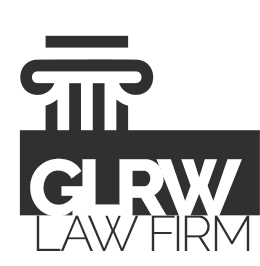
24 Sep How to Handle Disorderly Tenants: Eviction Legal Advice for Southern New Jersey Landlords
Introduction to Handling Disorderly Tenants for Southern New Jersey Landlords
Handling disorderly tenants is something every landlord in Southern New Jersey might face at some point. It starts with late rent payments, noise complaints, or even property damage. But here’s the thing, you’ve got to know your rights and the right steps to take. First off, knowing the local laws is crucial. In Southern New Jersey, the eviction process is strict, and you need to follow it to the letter. This means giving proper notices, documenting everything, and sometimes, regrettably, taking legal action. Remember, it’s not just about getting rid of a problem tenant. It’s about doing it the right way to avoid legal backlash. Stick around, and we’ll dive into the specifics of eviction legal advice tailored for Southern New Jersey landlords. This way, you can manage disorderly tenants effectively while protecting your investment.
Understanding Your Rights as a Landlord in Southern New Jersey
In Southern New Jersey, as a landlord, you’ve got rights, and it’s crucial to know them to deal effectively with disorderly tenants. First off, you can evict a tenant for reasons like not paying rent, damaging property, or breaking lease terms. Before you march straight to eviction, though, New Jersey law requires you to give your tenant a notice. Depending on the situation, this could be a notice to pay rent or quit, a notice to cease for lease violations, or an immediate notice for severe violations. After the notice period, if the issue isn’t resolved, you can file for eviction with the court. Remember, self-help evictions – changing locks, cutting utilities, or physically removing tenants – are illegal. Always follow the legal route; it protects you and ensures the process is fair. Knowing and exercising your rights is key in handling difficult tenant situations effectively in Southern New Jersey.
Identifying Disorderly Behavior: What Qualifies?
Identifying disorderly behavior in tenants isn’t just about loud music or the odd complaint from a neighbor. It’s about consistent actions that disrupt the peace, damage property, or put others at risk. New Jersey law is clear: disorderly conduct can include excessive noise, property damage, threats, or any behavior that’s a clear breach of the lease agreement. Keep an eye out for repeated disturbances, whether it’s parties til dawn or a tenant who treats your property with disrespect. Remember, a bad day doesn’t make a disorderly tenant, but a pattern of disrespect for property or neighbor peace does. Spotting these signs early can save you from bigger headaches down the road.
Initial Steps Before Considering Eviction
Before you jump to eviction, let’s talk first steps. They’re crucial. First off, chat with your tenant. It sounds simple, but sometimes, it’s all about communication. Find out what’s going on. Are they going through tough times? It’s best to understand their situation first. Next, check your lease agreement. What does it say about late payments or breaking rules? Know what you agreed on. If things aren’t getting better, send a formal reminder. This could be a notice highlighting their lease violations or late payments. It’s a step to show you mean business but in a fair way. Keep all your communication recorded. Emails, letters, notes from calls – these can be golden if things escalate. Remember, eviction is your last resort. It’s costly and time-consuming for everyone involved. So, try to solve things early and keep it civil, if possible.
When to Seek Eviction Legal Advice
Knowing when to seek eviction legal advice can save landlords in Southern New Jersey a lot of headache and money. The first sign is if you’ve got a tenant who’s not paying rent on time or consistently breaking lease terms. Sure, you might try to sort things out directly, but if these issues persist, you need legal backing. Another clear sign is if the tenant causes significant damage to the property. Small wear and tear? Not a big deal. But serious damage that affects the property’s value? Time to talk to a lawyer. Finally, if you’re feeling overwhelmed by the legal requirements of eviction, like not knowing how to properly serve an eviction notice or handle tenants’ defenses in court, it’s time to get professional advice. Don’t wait until you’re out of options. Getting the right legal advice early can prevent bigger problems down the line.
The Legal Eviction Process in Southern New Jersey: An Overview
In Southern New Jersey, the legal eviction process is straightforward but strict. Landlords need to follow the steps closely to avoid legal backlash. First, you must give the tenant a valid reason for eviction, such as not paying rent or breaking lease terms. Then, you serve a notice to quit, basically asking the tenant to fix the issue or leave. If they don’t comply, you file for eviction with the court. There’s usually a hearing, and if the court decides in your favor, they’ll grant an eviction order. Only a court officer can physically remove the tenant if needed. This whole process can take a couple of weeks to a few months, depending on the case’s specifics. Remember, it’s crucial to keep everything legal and within the bounds of New Jersey law to prevent additional problems.
Key Documentation and Preparation for Eviction Proceedings
Before starting eviction proceedings, Southern New Jersey landlords must gather key documents. These include the lease agreement, evidence of lease violation or overdue rent, and any communication attempts with the tenant. You’ll also need records of all property notices you’ve delivered to the tenant, according to New Jersey law. Start by sending a formal notice of your intent to evict, clearly stating the reason, be it unpaid rent or other lease breaches. Document every step you take in this process. This preparation makes your case stronger in court. Be direct but fair in your dealings, keeping communication lines open. Remember, thorough documentation can significantly influence the outcome of eviction proceedings.
Navigating Court Proceedings: Tips and Expectations
Going to court might seem daunting, but it’s a necessary step if you’re dealing with a disorderly tenant. In Southern New Jersey, evicting a tenant involves following strict legal procedures. First, always start with a clear, formal eviction notice citing the specific reasons. This is your legal groundwork. Remember, everything should be in writing. Documentation is your best friend here. Expect the process to take a few weeks to a couple of months, depending on the case complexity and court backlog. In court, present your case succinctly. Be prepared with all relevant lease agreements, payment records, and any communication between you and the tenant. Don’t exaggerate or omit facts. Stick to the specifics of the violations. You might be tempted to share every single issue, but focus on the ones that legally justify eviction. Finally, respect the court’s decision. If it’s in your favor, you’ll proceed with eviction under the sheriff’s supervision. If not, you’ll have to revisit your approach. Patience and thorough preparation are your allies in this process.
After the Eviction: How to Proceed with Your Property
After winning an eviction case, it’s time to get your property back on track. First thing, you’ll need to inspect the property for any damage. If there are damages, calculate the repair costs. This might dip into the tenant’s security deposit. Remember, New Jersey law has specific rules about how and when to use this deposit for repairs, so you need to follow these to the letter. Next, consider refreshing the property. A fresh coat of paint and minor repairs can make your property more appealing to the next tenant. Now, it’s time to find a new tenant. Be thorough in your screening process. Check references and do background checks. This step is crucial to avoid future problems. Lastly, reflect on the eviction process. Was there anything you could’ve done differently? Learning from this experience can help you manage your property better in the future and possibly avoid another disorderly tenant situation. Handling your property post-eviction is all about resetting and preparing for better tenant relationships moving forward.
Summary and Final Thoughts on Managing Tenant Evictions
Evicting a tenant is never an easy process, but it’s essential to know you’ve got methods to follow, especially here in Southern New Jersey. Stick to the book: always start with clear communication. If that fails, the next steps involve formal warnings, legal notices, and, if it must come to it, an eviction lawsuit. Remember, laws vary by location, so understanding local regulations is key. Costs can rack up, from court fees to potential lost rent, so it’s wise to approach with a clear plan. Dealing with disorderly tenants requires patience, firmness, and a good understanding of your legal rights and responsibilities. If eviction becomes necessary, make sure to handle it professionally and legally to avoid further complications. Stay informed, stay prepared, and whenever in doubt, seeking professional legal advice can save you a world of trouble.




Sorry, the comment form is closed at this time.